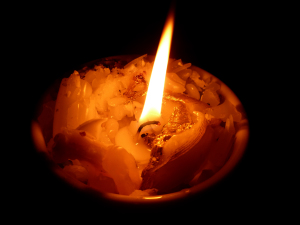WE SAY LITTLE, WHEN VANITY DOES NOT MAKE US SPEAK
-François de la Rochefoucauld
The annual August road trip from Maryland to South Carolina had become a tradition in the Baker household. Grandma was always thrilled to see her ever growing grandchildren, Paul and Tessa. Their parents, John and Maureen, both grew up near Greenville, SC before moving to Maryland for college some twenty years back.
Camping, fishing, golfing and storytelling were always on the agenda during their one week stay with their vivacious eighty six year old grandmother. They all especially enjoyed sitting at her feet after dinner listening to new stories she had written within the past year of their last visit. “Tell us a story” Maureen requested.
Grandma closed her eyes briefly as if thinking of an appropriate story and then began…

One day, the old wise Socrates walks down the streets, when all of a sudden a man runs up to him “Socrates I have to tell you something about your friend who…”
“Hold up” Socrates interrupts him “About the story you are about to tell me, did you put it through the three sieves?”
“Three sieves?” The man asks “What three sieves?”
“Let’s try it” Socrates says.
“The first sieve is the one of truth, did you examine what you were about to tell me if it is true?” Socrates asks.
“Well no, I just overheard it” The man says.
“Ah, well then you have used the second sieve, the sieve of good?” Socrates asks “Is it something good what you are about to tell me?”
“Ehm no, on the contrary” the man answers.
“Hmmm” The wise man says “Let’s use the third sieve then, is it necessary to tell me what you are so excited about?”
“No not necessary” the man says.
“Well” Socrates says with a smile “If the story you are about to tell me is not true, good or necessary, just forget it and do not bother me with it.” *
Imagine how much trouble and headache can be avoided by speaking only what is good, true and necessary. Serenity, inner calmness, is the result of continued effort in self-control and humility. Only when a man ceases to give his unrequested opinion on every subject but rather speaks only when, where and how it is necessary can he begin to call humility his own. The gift of speech becomes a curse and leads to unrest when its powers are lent to gossip, slander and unnecessary chatter. Patiently observe the effect of your words on your being, only then does the greatness of the story become undoubtedly evident.
* Source- Unknown

 “My only request for my memorial service is that it should be short; do not mention any of my accomplishments or say that I was a good man, simply say that I was a man who strove to be good.” Prasanna Patel said to his grand-daughter.
“My only request for my memorial service is that it should be short; do not mention any of my accomplishments or say that I was a good man, simply say that I was a man who strove to be good.” Prasanna Patel said to his grand-daughter.
